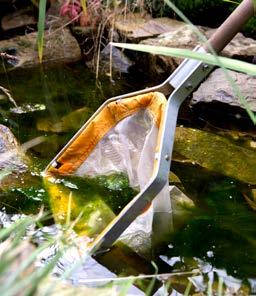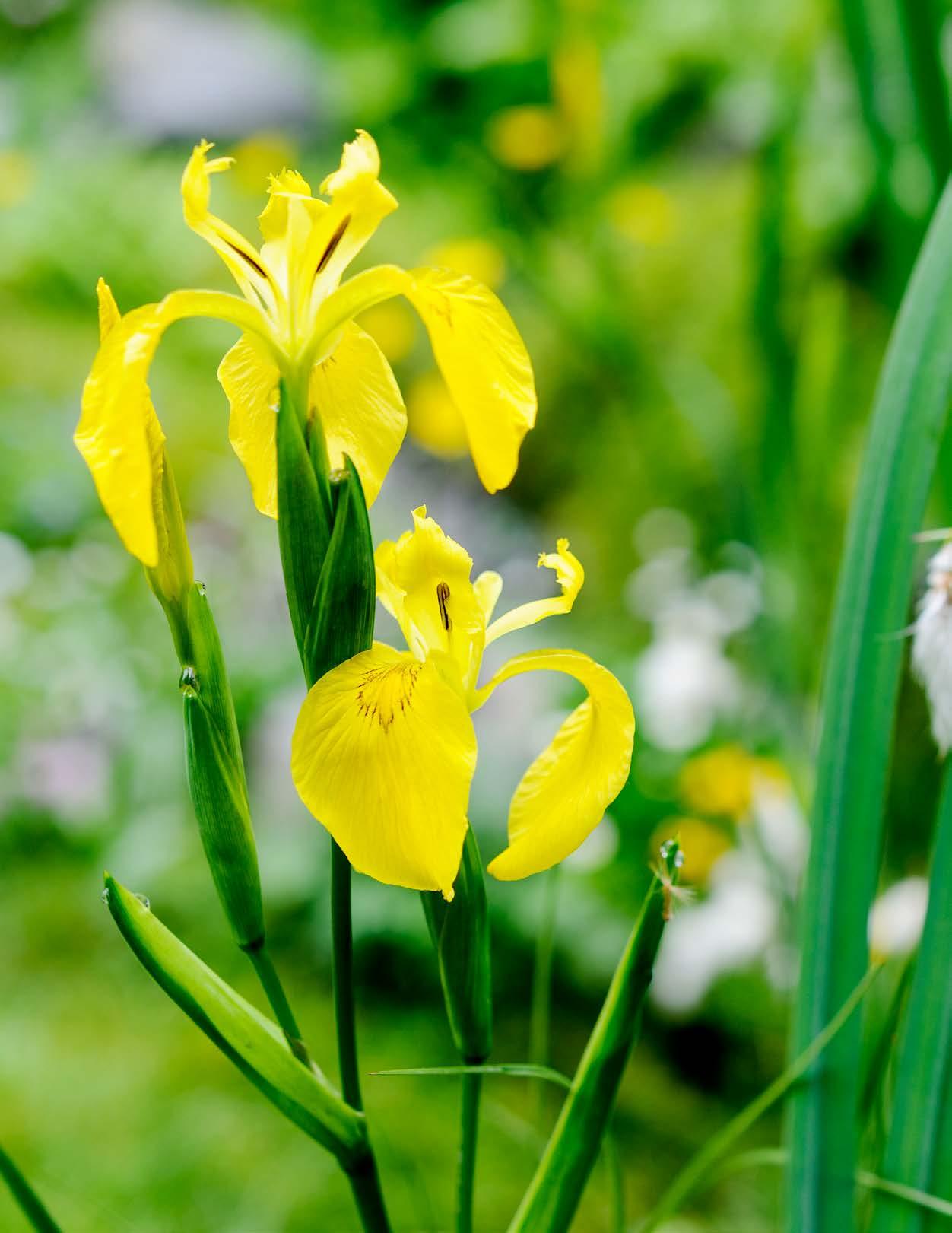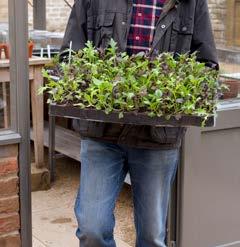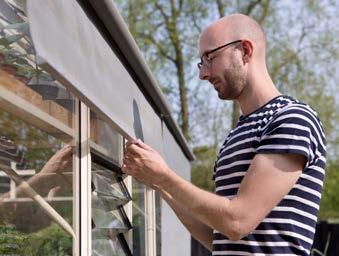
3 minute read
Dig up the whole plant with as much of the
Plant up a pond

Wildlife will come to a pond whether you plant it with native or non-native plants. Whichever you choose, use a varied mix of marginal plants at the edges and aquatics further into the pond. Create an unplanted beach area so that birds and mammals have easy access to the water. Regularly scoop out algae and debris to keep the water clear.
Plant perennials like this yellow flag iris into mesh containers, then position them carefully in the water. Stand the containers on bricks, if necessary, so they’re at the right depth. Over time, gradually lower plants with floating leaves to the bottom as the stems grow. Provide a wide range of plants for different species of wildlife. Dragonflies pupate on the upright stems of marginal plants. Frogs and newts like the shade of plants with floating leaves – ideally these should cover two-thirds of the surface.

What to do this month
Spring is well under way, so get outside and enjoy some of our top April jobs
Around the garden
Harden off plants
The risk of frost will soon be over in most parts of the UK, so you’ll be able to start planting tender plants outside. But they’ll suffer a setback if you put them straight out. Instead, acclimatise them gradually by putting them in a warm, sheltered spot during the day, then covering at night. This will toughen them up to cope with the cooler temperatures, breezes and stronger sunlight outdoors.

M O N E Y S A V E R Pot up plugs for summer displays

You can save money on summer bedding by buying young plug plants from mail-order suppliers and garden centres now.
These mini plants go on sale at this time of year and are a fraction of the price that the fully grown bedding plants will be in a few weeks’ time. They’re also very easy to grow – you just need a little space in your greenhouse to grow them on. So it’s well worth giving it a go this month.
Pot up the plug plants straight away into small pots and water well. Stand them in a greenhouse, and the plants should soon settle in and start growing strongly. They should be ready for planting into borders, pots and hanging baskets by the end of May.
1 0 M I N U T E S
Order nematodes to control specific pests, including vine weevils and slugs. Check that temperatures are warm enough before applying. QUICK & EASY
Check for pests in the greenhouse
Various pests will overwinter in greenhouses, including red spider mites, scale insects (pictured) and aphids. As temperatures rise they start to feed and multiply. To stop infestations building up, check plants regularly and remove pests or infested shoots. Alternatively, apply biocontrols or use sprays made from soaps or plant extracts.
Protect young plants indoors
Young plants, such as seedlings or recently potted-up plug plants, aren’t yet strong enough to tolerate very bright sunshine. So even though it’s still early in the year, it’s worth putting up some shade netting, pulling down blinds or simply rigging up a cardboard screen to shield vulnerable young plants in trays and pots. Sun can dry out the compost quickly too, so check moisture levels daily.




